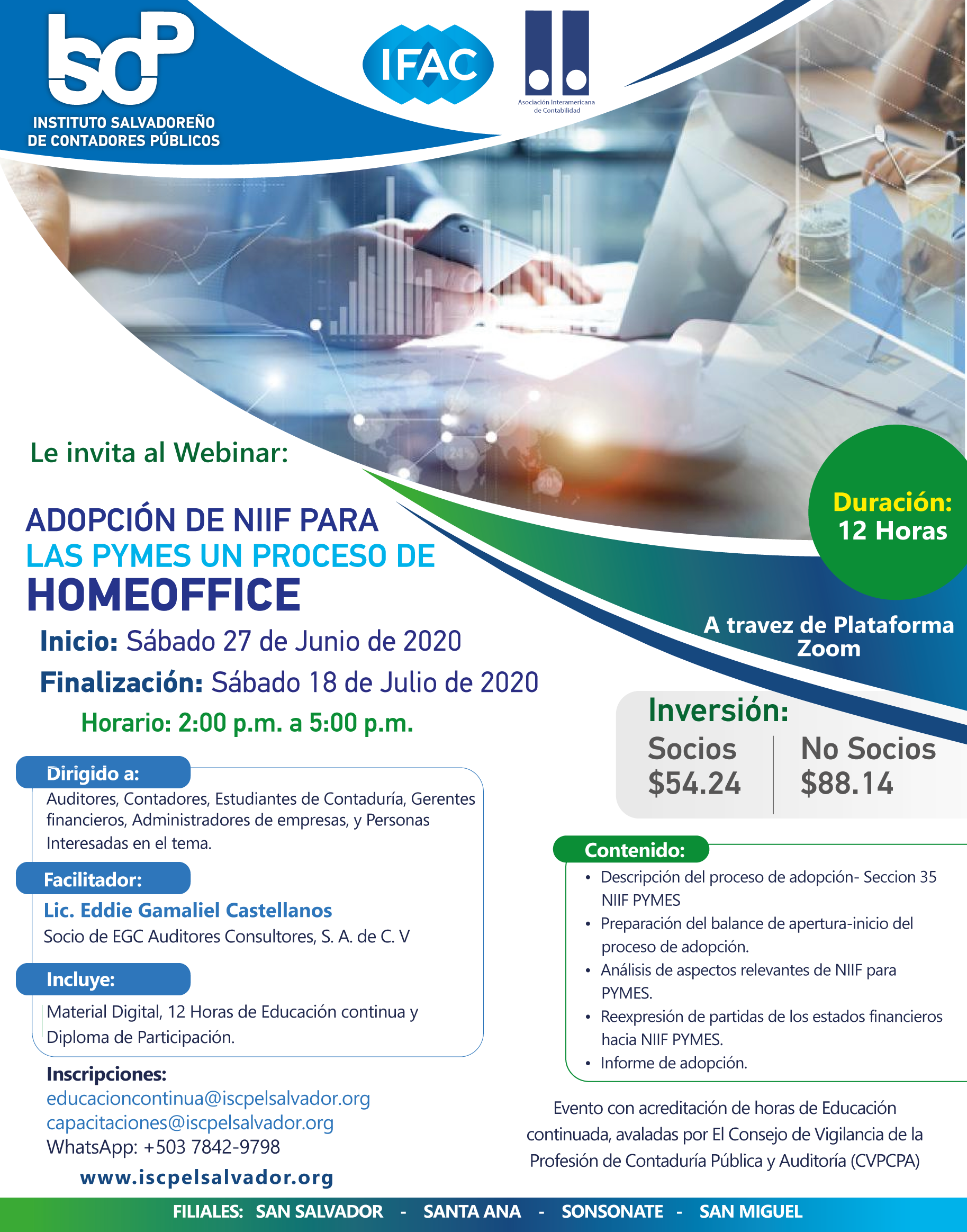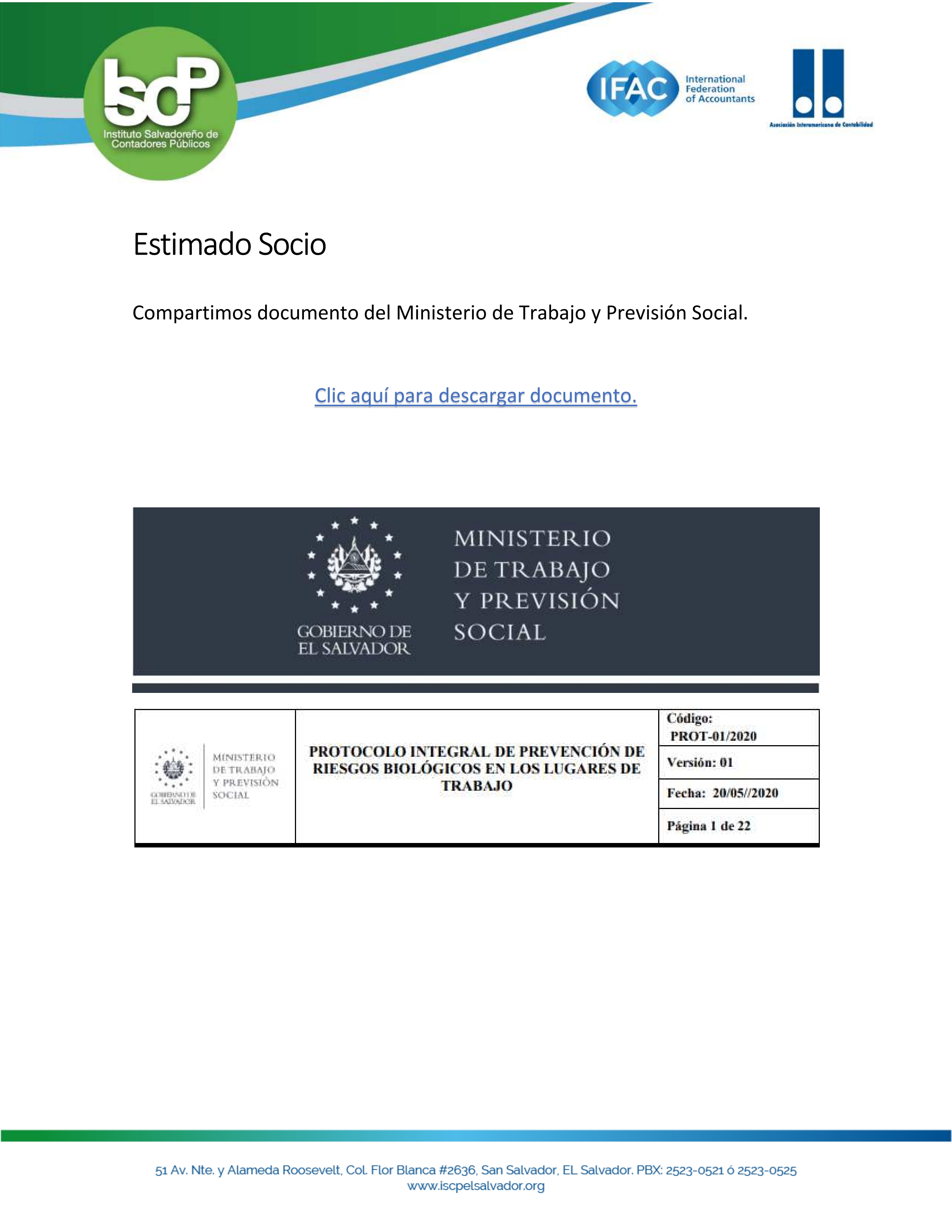|
|---|
martes, 23 de junio de 2020
Desde IFAC
lunes, 22 de junio de 2020
Desde HBR
| Today’s Tip |
| Adapt Your DE&I Initiatives to the Reality of the Pandemic |
| The Covid-19 pandemic and economic fallout have taken a disproportionate toll on communities of color in the United States. Business leaders have an opportunity to address this inequity by rethinking their diversity, equity, and inclusion (DE&I) efforts. Start by collecting information on the most pressing pain points around your current initiatives, and identify opportunities to improve them. For example, you can add questions related to the crisis to your weekly pulse surveys and look at the results by demographic to gauge the challenges that different employees are facing. Then, be proactive about tackling the specific challenges you identify. This means bringing in the right people to lead that work. Keep in mind your company may already have people with the necessary skills or expertise who aren’t in formal DE&I roles. Consider temporarily changing their role to allow them to take on these challenges. You may also need to seek outside help. Try to find consultancies that offer flexible, context-dependent services (rather than off-the-shelf solutions), or consider bringing in a mix of smaller firms and specialists to work on problems in parallel. This will require coordination, but will ensure you’re addressing the particular problems that your company is facing. |
| This tip is adapted from “Adapt Your D&I Efforts to the Reality of the Crisis,” by Lily Zheng |
Desde Cartelera Informativa UCA
Cursos
Gerencia en Operaciones y Logística (virtual)
Del 2 de julio al 1 de agosto.
Fecha límite de inscripción: Miércoles 1 de julio.
Más información
Del 2 de julio al 1 de agosto.
Fecha límite de inscripción: Miércoles 1 de julio.
Más información
Aplicado en Estrategias Digitales (virtual)
Del 6 al 16 de julio.
Fecha límite de inscripción: Viernes 3 de julio.
Más información
Del 6 al 16 de julio.
Fecha límite de inscripción: Viernes 3 de julio.
Más información
Diplomados
De Postgrado en Finanzas (virtual)
Del 7 de julio de 2020 al 20 de abril de 2021.
Fecha límite de inscripción: Lunes 13 de julio.
Más información
Del 7 de julio de 2020 al 20 de abril de 2021.
Fecha límite de inscripción: Lunes 13 de julio.
Más información
Finanzas para no Financieros (virtual)
Del 7 de julio al 5 de noviembre.
Fecha límite de inscripción: Lunes 6 de julio.
Más información
Del 7 de julio al 5 de noviembre.
Fecha límite de inscripción: Lunes 6 de julio.
Más información
Talleres
Diseño de Emprendimientos Sociales (virtual)
Del 1 de julio al 2 de septiembre.
Fecha límite de inscripción: Martes 30 de junio.
Más información
Del 1 de julio al 2 de septiembre.
Fecha límite de inscripción: Martes 30 de junio.
Más información
Gamificación: Aprendizaje y Enseñanza en Casa (virtual)
Del 4 al 25 de julio.
Fecha límite de inscripción: Viernes 3 de julio.
Más información
Del 4 al 25 de julio.
Fecha límite de inscripción: Viernes 3 de julio.
Más información
Transformación de Liderazgo para Equipos Remotos (virtual)
Del 14 de julio al 6 de agosto.
Fecha límite de inscripción: Lunes 13 de julio.
Más información
Del 14 de julio al 6 de agosto.
Fecha límite de inscripción: Lunes 13 de julio.
Más información
sábado, 20 de junio de 2020
Desde MITSloan
|
|
Desde McKinsey & Company
|
|---|
viernes, 19 de junio de 2020
Desde HBR
| Today’s Tip |
| Is Your Team Focused on the Right Priorities? |
| In the first months of the Covid-19 crisis, many teams were grappling with the new reality of working from home. Now that it seems that many will be working remotely for the foreseeable future, it’s a good time to take stock of whether your teams are still focused on the right priorities. Ask your team leaders to evaluate their short and long-term objectives: Are they still relevant to your current situation? They’ll likely need to make some adjustments — teams that are still operating as they did six months ago may be cause for concern. Make sure you assess the team’s adjusted priorities against any revised company projections: Do their scope, output, and timing still make sense given the new reality? If not, determine whether the team’s work can be shifted to create value in the current environment, or whether you need to reorganize to meet new needs. Regular check-ins on your team’s priorities increase the chance that you’ll identify small problems early, allowing you to ensure they don’t become big issues later. |
| This tip is adapted from “How to Prepare Your Virtual Teams for the Long Haul,” by Mark Mortensen and Constance Noonan Hadley |
Desde MITSloan
|
|
Desde npj Science of Learning
Here’s a list of the great content selected as a highlight in the past 2 weeks.
| ||||||||||||||||||
|
miércoles, 17 de junio de 2020
Desde HBR
| Today’s Tip |
| Try Silence During Your Next Remote Brainstorm |
| Research shows that embracing silence during a brainstorm helps teams produce significantly more — and higher-quality — ideas. Silent brainstorming can be particularly useful in remote meetings. So what does it look like in practice? First, starting with the meeting invite, make sure everyone understands the goals of the brainstorming session. Then, at the beginning of your meeting, share a working document (such as a Google Doc) with key questions that need to be answered. Encourage all participants to contribute to the document for 10 to 20 minutes without talking. During this time, attendees can actively ideate and respond to each other in the document. The leader can also participate, providing direction and asking attendees to elaborate on specific ideas as they’re being formed. Once the silent phase of the brainstorm is complete, you can begin a discussion if your group is relatively small. If the group is large, you can end the meeting, review the document, and follow up with an email that shares conclusions and next steps. Or, you might consider sending out a quick survey where participants can react or vote on options to move forward. |
| This tip is adapted from “Break Up Your Big Virtual Meetings,” by Liana Kreamer and Steven G. Rogelberg |
Desde IFAC
|
|
|
|
|
lunes, 15 de junio de 2020
Desde TESSERACT Learning
|
Coronavirus forced employees across the globe to change the way they work almost overnight. Along with the stress of keeping themselves and their families safe from coronavirus, employees are facing other unique challenges. Challenges like work-life balance and elevating their skills to be ready for a post COVID19 world.
To emerge stronger from this crisis, companies should communicate more, engage better and upskill their employees.
| ||||||||
|
Desde HBR
| Today’s Tip |
| Adopt a “Choice Mindset” When Facing an Ultimatum |
| Lots of negotiators use ultimatums to elicit concessions from the other party — and they’re often successful. So what should you do if you’re on the receiving end of one of these “take it or leave it” demands? One tactic is to adopt a “choice mindset,” which helps you see other options. Before the negotiation, make a list of any and all choices that you and your counterpart have. Write down your choices on one side of your list and your counterpart’s choices on the other side. Think broadly — don’t just focus on numbers, but consider other things that might be valuable to either side. For example, if you’re negotiating for a new job, of course salary is important to both of you. But if you get stuck on salary, you could negotiate on other points, such as more vacation days or less work-related travel. Or if you’re buying a new car, instead of fixating on price, you could think about what additional accessories the dealer might be willing to throw in. When you understand the choices available to you — and your counterpart — you’re much less likely to cave in response to a “take it or leave it” ultimatum. |
| This tip is adapted from “How to Respond to ‘Take It or Leave It',” by Anyi Ma, Yu Yang, and Krishna Savani |
domingo, 14 de junio de 2020
Desde McKinsey & Company
|
Suscribirse a:
Entradas (Atom)





























